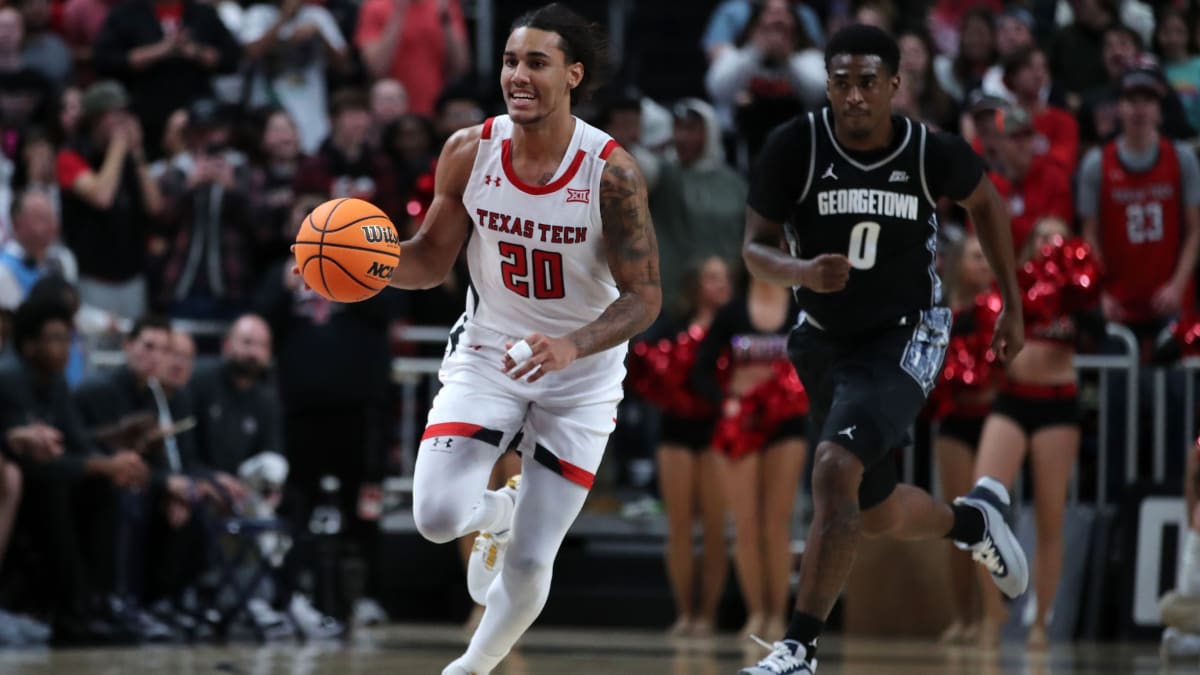The NCAA’s crackdown on second-time transfers being granted immediate eligibility continued Thursday with the organization’s latest waiver denial.
The NCAA informed Cal this week that Jaylon Tyson, a junior forward transfer from Texas Tech who also spent time at Texas, had his waiver for immediate eligibility denied. The ruling comes in spite of the fact that Tyson, who is Black, left Texas Tech in the wake of head coach Mark Adams resigning after making racist comments to players.
“Last year, I was racially discriminated against on multiple occasions. I was called a slave, and that Mark Adams was my master,” Tyson told Sports Illustrated. “When he said that I kind of froze and went down a dark path in my life that I had never [experienced] before. It was very embarrassing for me and my family to have to go through this process.”
Neither Adams nor Texas Tech has denied the racially insensitive comments were made (though Adams said the comments were tied to a Bible verse).
Adams was also under investigation for spitting on a player, per Jeff Goodman of Stadium, and reportedly told the player “I can spit on you whenever I want to.” Adams is now an assistant coach at East Carolina after resigning his post at Texas Tech and receiving $4.1 million in a legal settlement.

Michael C. Johnson/USA TODAY Sports
Even by the NCAA’s recently tightened standards for second-time transfer waivers, which limited waivers to issues of “a student-athlete’s physical or mental wellbeing,” “exigent circumstances beyond a student-athlete’s control” or “diagnosed education impacting disabilities,” Tyson’s case seemed open-and-shut. The new waiver guidelines do specify “discrimination based on a protected class” under the “exigent circumstances” category as criteria for immediate eligibility. But the NCAA, which had granted just 18% of waiver requests as of Sept. 1, per Jon Rothstein, still denied Tyson’s attempt for immediate eligibility. Why?
A source close to Tyson indicated the denial stems from the timing with which he left Texas Tech. Adams resigned on March 9, but it wasn’t until April 16 that The Athletic first reported Tyson’s intent to enter the transfer portal. Two days before, former Texas Tech assistant Matt Scherbenske had reportedly taken a job on Cal’s staff. His hire was officially announced by the university on April 17. Tyson visited Cal the following weekend and committed on May 8 after also visiting Kansas and considering several other schools. According to the source, the NCAA used that timeline against Tyson in its decision, but Tyson says he had different reasons for waiting to enter the portal.
“It took me a long time to really evaluate because I was almost starting to get used to that toxic environment. Texas Tech was my dream school growing up. I love Texas Tech like no other,” Tyson says. “But I just feel like it wasn’t the right place for me because … I walk into the coaching lounge and that’s where I was called a slave. So it was hard to walk around there and still look at myself as a human being. I don’t think mentally I could’ve went back to Texas Tech.
“It was an unfortunate situation, both parties have moved on. My only goal is to get back to doing what I love, [and] that’s playing basketball. Both parties know and are well aware of what happened, for my mental stability I’d rather not completely revisit the past.”
Through a spokesperson, the NCAA declined to comment on the ruling, citing federal privacy laws.
Tyson says another reason he waited to enter the portal was to fulfill a promise to Texas Tech athletic director Kirby Hocutt that he would wait for the school to hire a new coach and meet with them before entering the portal. “In my mind, I had known I was out the door, but I just wanted to weigh all my options, make sure I was making a rational decision,” Tyson says. But the early April meeting with new coach Grant McCasland went south in Tyson’s eyes and he elected to enter the portal.
Cal is preparing to appeal the decision with the hopes of getting Tyson, the crown jewel of a talented transfer class for new coach Mark Madsen, eligible for this season. Tyson averaged 10.7 points and 6.1 rebounds a season ago for the Red Raiders. He’s the latest high-profile transfer to be denied immediate eligibility, with RaeQuan Battle at West Virginia and Aziz Bandaogo at Cincinnati also getting bad news in recent days.
Despite the more stringent guidelines receiving unanimous support from representatives of all 32 conferences, the NCAA’s application of the new rules has drawn the ire of coaches, athletic directors and even politicians. The state attorneys general in Ohio and West Virginia have both made public comments questioning the NCAA’s antitrust authority in response to the waiver denials. In football, North Carolina Governor Roy Cooper and AG Josh Stein blasted the NCAA over its waiver denial for star wide receiver Devontez "Tez" Walker. Walker was later cleared to play by the NCAA. Tyson is hopeful that the appeals process will produce a similar outcome.
“My message would be that due to my circumstances, I want them to understand not from their perspective, but put their feet in my shoes and understand what I had to go through that year [at Texas Tech],” Tyson says. “All I’m asking for is the opportunity to play basketball and be a student-athlete one more time.”

.png?w=600)





